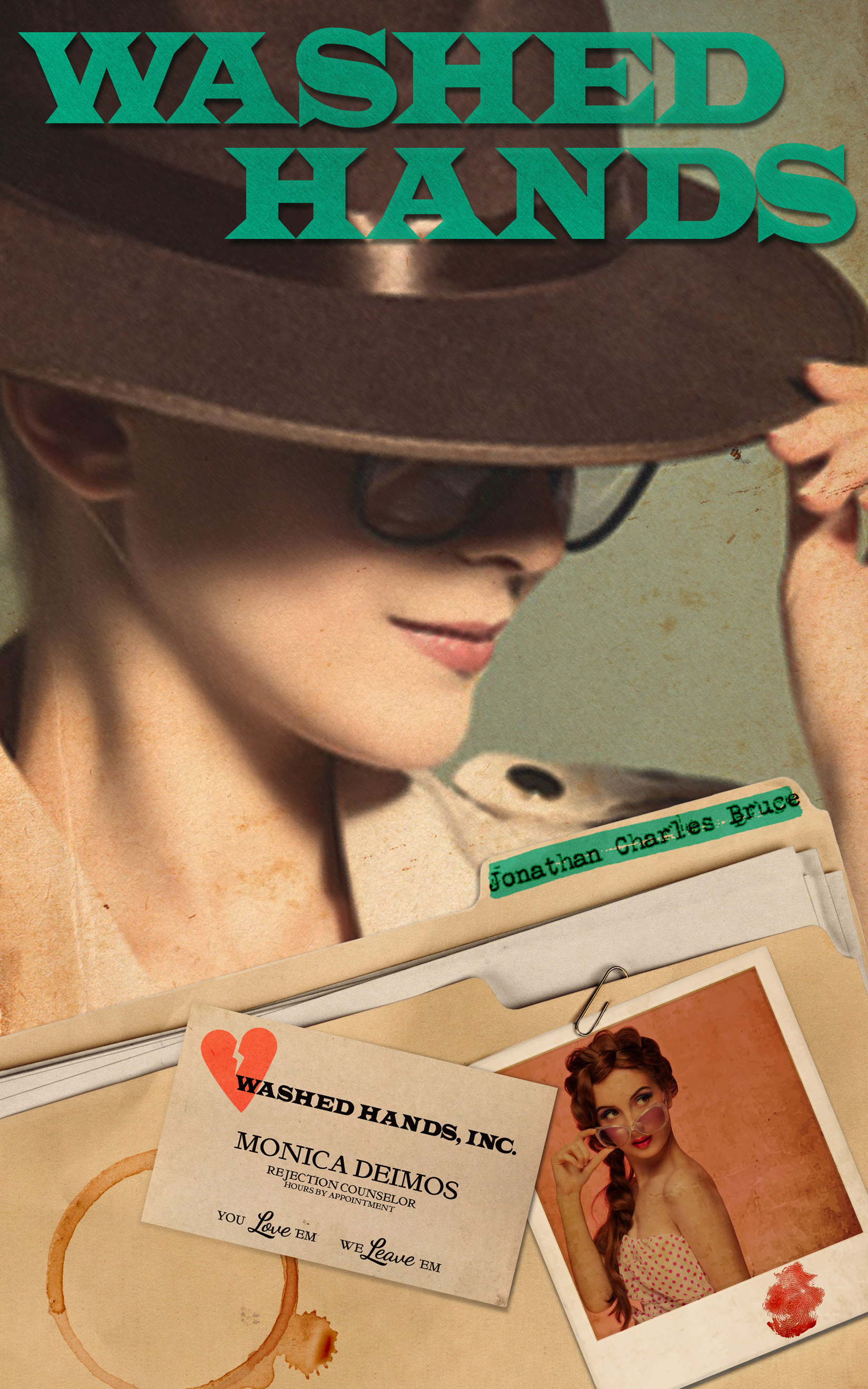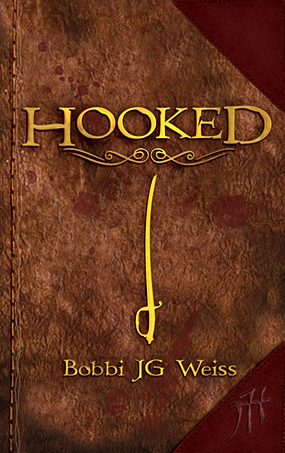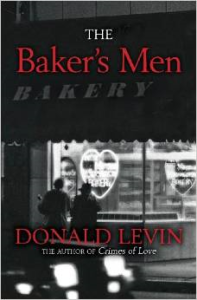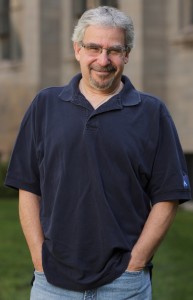
Title: Washed Hands
Author: Jonathan Charles Bruce (http://www.jonathancharlesbruce.com)
Genre: Mystery, Thriller
Release Date: October 14, 2014
Publisher: Booktrope Publishing (http://booktrope.com)
Price: $13.95 (paperback)
ISBN: 9781620154656
Synopsis:
Breaking up can be one of the hardest things a person can do, something that the dedicated team at Washed Hands, Inc. thoroughly understands. Whether one’s soon-to-be-ex is manipulative, violent, or anything else that makes a clean break difficult, the company’s rejection counselors ensure that the split is established and maintained in no uncertain terms. And in the toughest cases, no one’s better at this than Monica Deimos. Brought in on what appeared to be a relatively straight-forward domestic nightmare, Monica realizes all-too-late that she has been set up to take the fall for the murder of a wealthy socialite. As the police close in, Monica needs to discover who she can trust, who wants her out of the way, and why she was framed. She’s no fool, though. The best case scenario ends in a jail cell… the worst in a body bag.
Links:
Website: http://www.jonathancharlesbruce.com
Jonathan Bruce began writing what amounted to terrible Star Trek: The Next Generation fan fiction when he was four. Although the original manuscripts are lost (or perhaps destroyed), we can rest assured that his prose has improved significantly since then. After high school, he began writing and directing plays which gradually improved depending on whom you ask. He discovered his love of a good fight scene after writing a Dracula knock-off which took a 19th century classic and made it less about Victorian yearning and 300% more about stabbing things in the jugular.
And yes, this means he wrote vampire fiction before Stephanie Meyer made it cool to sparkle in the sun.
He has a Master’s Degree in History, thanks largely to his thesis focusing on MUSIC, a Milwaukee-based school desegregation campaign during the 1960′s. He also enjoys discussing/making fun of pop culture of the 20th century and reading books of a non-historical nature. In his off moments, you can catch him writing for fun or making inane movies about nothing in particular. He also occasionally provides work for Twenty Four Pages a Second, a pretty keen website you should totally check out.
Guest Post
It’s hard coming up with something to write
today that isn’t going to be a bit on the sullen side. I apologize for that. I
blame the slow shamble toward winter for the somber tone.
Washed Hands had started life as a one-off gag post for my blog. The central idea
behind it was no joke however—an agency created for the sole purpose of
assisting people with their breakups is something that I think would make
things a lot easier all around. It sounds tremendously impersonal, I’m sure, but
I’ve been through breakups where I’ve turned into an awful person, desperate to
maintain a hold on something that had long since died. It’s sobering (and
honestly embarrassing) to realize the kind of darkness and general pettiness
that we’re capable of. And it’s not just me; I’ve seen friends deal with their
significant others as the latter devolve into selfish, angry monsters,
professing love one moment before lashing out the next.
Washed
Hands mission, to preserve a client’s day-to-day life as much as possible, will
probably strike some as callous and outright cold. I see it as a sad, but
logical, extension of the world we live in. Toxic relationships are all around
us—our Facebook and Twitter feeds are filled with drama that we divert our eyes
from because we know that it’s better to stand by and watch the meltdown than
get involved.
I’m
not saying that it’s a solution, of course. What we’d need is a complete
re-education process. Teach people to define themselves as single entities that
partner with people rather than engage in some kind of abstract contract that
confers companionship at the cost of autonomy and individuality. Stop writing
stories that put heroes and heroines meeting the
one when they’re barely old enough to vote. Admit that it’s totally fine
to not have everything figured out when you’re in your 20’s. And maybe, just
maybe, that respect—not jealousy, or attractiveness, or sexual compatibility,
or any of the other superficial motes of advice profound idiots hand out—is
something you absolutely need before
getting involved with another person.
Washed
Hands, fictional business that it is, is dedicated to basically providing a
barrier between exes. And, since it’s a business, it costs money for the
service. Some would see the triumph of capitalism. I see something that, at
best, is a band-aid on a tumor. Sure, it helps people that may not have the
means—emotional or otherwise—of affecting a breakup in a safe and secure
manner. But wouldn’t it be better all-around if it didn’t have to exist at all?
And
even then, there would be those that fall through the cracks—those that
couldn’t afford the service, those trapped in an all-controlling abusive
relationship, those who normalize their suffering as “just something couples go
through”, those who blame themselves… I made the business from the ground up
when writing it, and even as I typed I was all too aware of the holes, the
gaps, the bleakness of something like that even existing in our world would
mean.
I’m
not trying to say that I don’t love Washed
Hands—I certainly do. It’s just a lot heavier on a philosophical level than
I was really anticipating. That’s pretty cool. I’ve mentioned elsewhere that I
write to figure out who I am and how I fit into this crazy world of ours, and Washed Hands is no different. It took me
to some interesting places, and at the very least, I hope you get to see some
of them, too.
And
then there’s the whole “reading it for enjoyment” thing. I hope it’s
entertaining. It’d be really terrible if it wasn’t.




